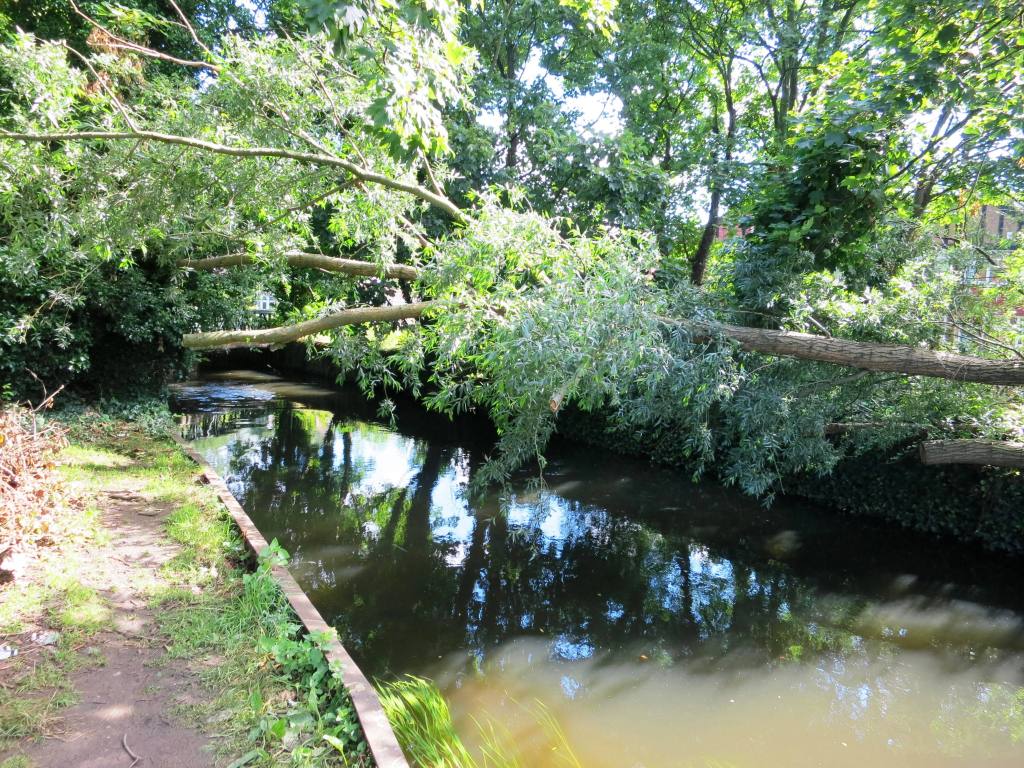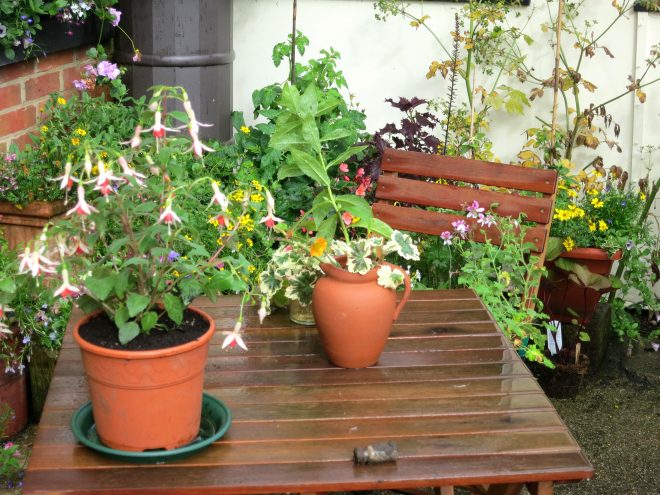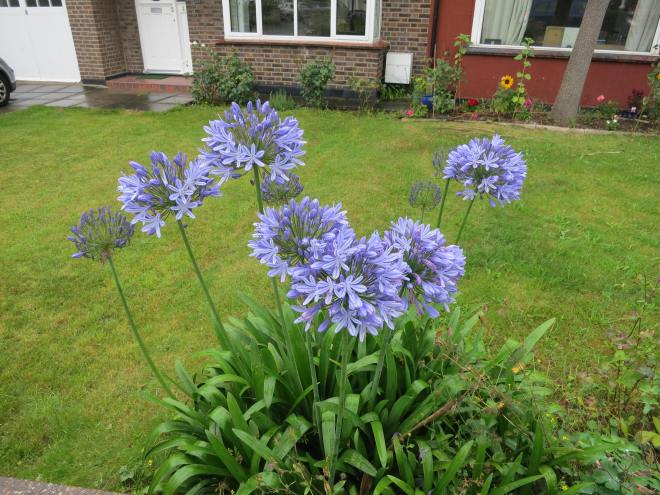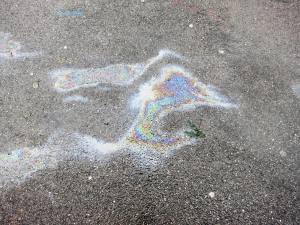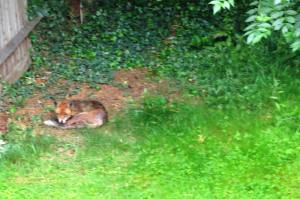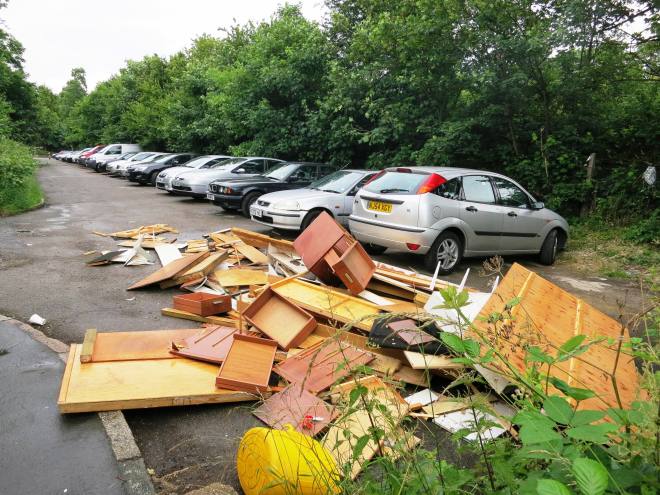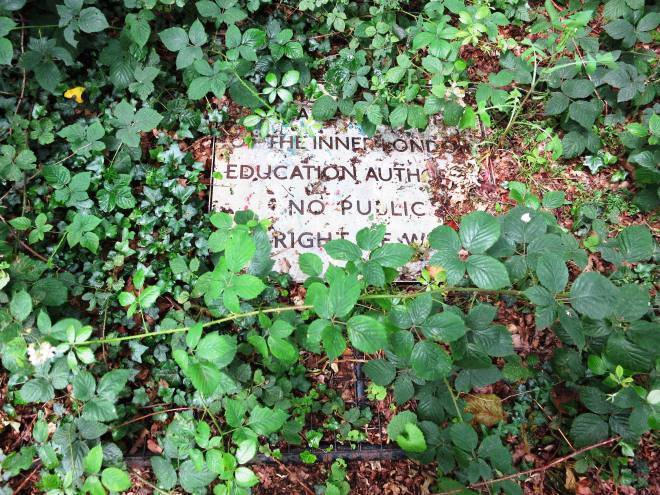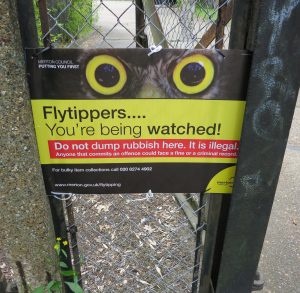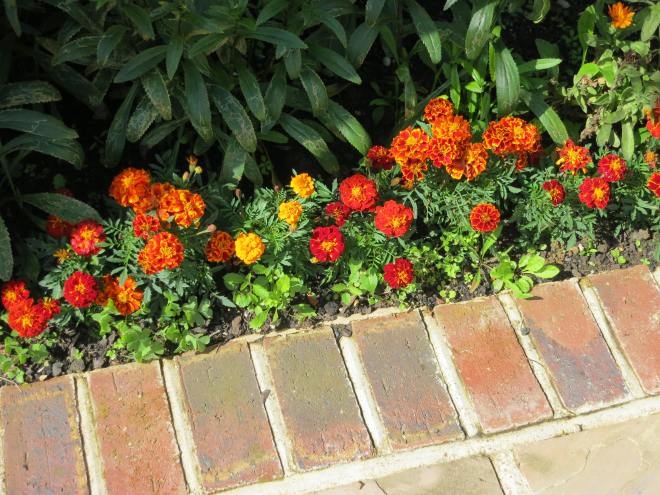 Dawn, after another night of rain, broke clear and sunny. I set off, with no particular goal, to stroll around the streets off Hillcross Avenue. I have previously mentioned the fact that Morden’s front gardens have been given over to the motor car.
Dawn, after another night of rain, broke clear and sunny. I set off, with no particular goal, to stroll around the streets off Hillcross Avenue. I have previously mentioned the fact that Morden’s front gardens have been given over to the motor car.  Outside this extended car park I chatted with an elderly woman who remembered when everyone tended their gardens. She said not many people liked gardening these days. I replied that perhaps that was so, but ‘what do you do with your cars?. The header picture, from Cherrywood Lane, indicates that some people try to maintain both plants and cars. The bricked surface shows the edge of the car standing area.
Outside this extended car park I chatted with an elderly woman who remembered when everyone tended their gardens. She said not many people liked gardening these days. I replied that perhaps that was so, but ‘what do you do with your cars?. The header picture, from Cherrywood Lane, indicates that some people try to maintain both plants and cars. The bricked surface shows the edge of the car standing area.
Emerging from The Green, I could not resist the temptation to continue onto Cannon Hill Common, where my feet got wet in the sodden grass and I skidded on the quagmire that masqueraded as footpaths. It had definitely not been a good idea to wear beige trousers fresh from the cleaners. The illustration of a path on Wimbledon Common on 10th. July gives you some idea. There was fishing going on by the lake, where a young mother was explaining to her toddler that ‘a dog is a dog and a duck is a duck and they are two different animals’.
It being a Mordred day, from Cannon Hill I walked back into Morden to pick up an Independent, for which I set a monthly crossword. Of the missing cats mentioned yesterday, Daisy has obviously returned home, but Diego is still on walkabout. I have mentioned Mordred before, and an illustration of his work appears on 5th. July. It is time to explain how he came into being. About thirty years ago I first ran in the Newark half marathon. For the event Jessica, Sam, Louisa and I went up to stay with our friends Maggie and Mike Kindred and their daughter Cathy in Southwell. Little did I know what this trip would lead to. We eventually moved from Furzedown in South London to Newark in Nottinghamshire, and a lifelong friendship was cemented. Having discovered that Michael and I shared a passion for crosswords, it seemed natural, when I got bored with reading on my daily commute to London, to set him a puzzle. He solved it and retaliated. This exchange continued for some time. Other commuters, noticing what I was engrossed in, interrupted my work to ask for solutions to puzzles they were solving. I did not give them the answers, but helped them to work it out for themselves. After a while Mike and I decided to do something a bit more ambitious and write a book which took students through a series of graded puzzles with the object of their being competent to solve a daily cryptic puzzle in any of the newspapers. I might say that, in doing so, our own solving abilities became vastly improved. This book became, in 1993, ‘Chambers Cryptic Crosswords and How to Solve Them’. It remained in print, going into a second, improved, edition for just short of twenty years, until Chambers was finally taken over by a company who did not want to use it. Not being able to break into a daily newspaper team in those early days, we decided to set what are called advanced cryptics. These are much more difficult, themed, puzzles found in the weekend newspapers, the editors of which accept puzzles from anyone who can meet the standard. We began with The Times Listener, generally recognised as the most complex of this genre. Now we had to have a pseudonym. So Mordred was born. I have always loved Arthurian legend, and as a setter, fancied myself as an evil Knight. Mordred was King Arthur’s treacherous nephew. The ‘dred’ bit fitted nicely with Michael’s surname, and as has been mentioned by more than one sorrowful solver, the whole is a homophone for more dread. We set a couple of joint puzzles as Mordred until, on the editor’s advice, we split up (although remaining very good friends). I became Mordred and Michael continues to set as Emkay.
I spent this afternoon doing my head in trying to get some figures right for my accountant, which didn’t much matter because the clouds were gathering again and the rain soon came back. It was still pouring in the evening when we went out to the China Garden restaurant in London Road for an excellent meal. Since living in Soho’s Chinatown in the 1970s, when you could get a set meal for £1.00, I have not really found many Chinese restaurants that pass muster. This one certainly does. The food is tasty and crisp; the service attentive, friendly, and discreet; and the ambience gentle and soothing. The rain continued as we left.

